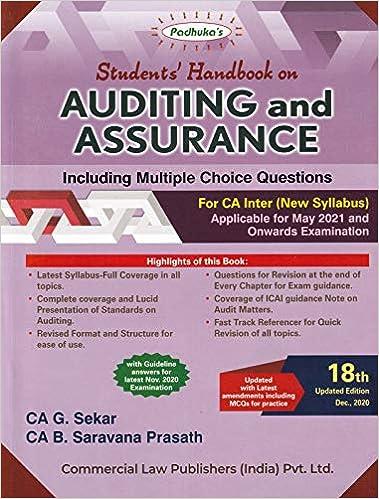The International Code of Ethics for Professional Accountants sets out by International Ethics Standards Board for Accountants (IESBA) are the fundamental principles of ethics for professional accountants, reflecting the profession's recognition of its public interest responsibility. These principles establish the standard of behavior expected of a professional accountant. The fundamental principles of the code of ethics are: integrity, objectivity professional competence due care, confidentiality. and professional behavior. The Code provides a conceptual framework that professional accountants are to apply in order to identify, evaluate and address threats to compliance with the fundamental principles. The Code sets out requirements and application material on various topics to help accountants apply the conceptual framework to those topics. Required: - Consider yourself working in an AIS - ERP environments in a Fortune 500 companies as an accounting executive Management is seriously concemed with the alarming rise of cybercrimes and frauds in corporate sector. In this regards, management is exploring different ways to equip the employees with required knowledge and understanding to avoid threats in this area. As an expert in both Accounting Information Systems (AIS) and accounting ethics promulgated by IESBA, management is seeking help from your team to highlight to the employees, how adhering to accounting ethics could help to avoid cybercrimes and frauds. In this regards, you have to do the following: Your team have to critically evaluate ethical issues, risks and controls involved within AIS environments. Your team have to narrate how adhering to International Code of Ethics for Professional Accountants may help your organization to minimize cyber risks, and strengthen cyber controls to minimize material errors or frauds Length of discussion: - The length of your discussion should not exceed 1,500 words, The International Code of Ethics for Professional Accountants sets out by International Ethics Standards Board for Accountants (IESBA) are the fundamental principles of ethics for professional accountants, reflecting the profession's recognition of its public interest responsibility. These principles establish the standard of behavior expected of a professional accountant. The fundamental principles of the code of ethics are: integrity, objectivity professional competence due care, confidentiality. and professional behavior. The Code provides a conceptual framework that professional accountants are to apply in order to identify, evaluate and address threats to compliance with the fundamental principles. The Code sets out requirements and application material on various topics to help accountants apply the conceptual framework to those topics. Required: - Consider yourself working in an AIS - ERP environments in a Fortune 500 companies as an accounting executive Management is seriously concemed with the alarming rise of cybercrimes and frauds in corporate sector. In this regards, management is exploring different ways to equip the employees with required knowledge and understanding to avoid threats in this area. As an expert in both Accounting Information Systems (AIS) and accounting ethics promulgated by IESBA, management is seeking help from your team to highlight to the employees, how adhering to accounting ethics could help to avoid cybercrimes and frauds. In this regards, you have to do the following: Your team have to critically evaluate ethical issues, risks and controls involved within AIS environments. Your team have to narrate how adhering to International Code of Ethics for Professional Accountants may help your organization to minimize cyber risks, and strengthen cyber controls to minimize material errors or frauds Length of discussion: - The length of your discussion should not exceed 1,500 words







